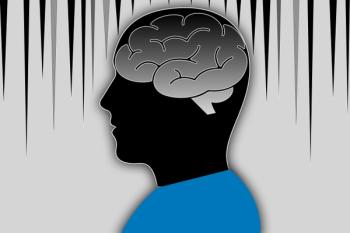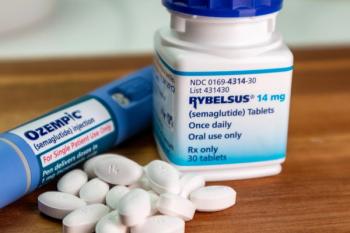
Psychosocial Insights: Exploring Issues in Heart Health
What can you do to support your patient's heart health?
CLINICAL CONVERSATIONS
With increasing research pointing to a strong link between mental health, psychiatric illness, and cardiac well-being, the
Psychiatric TimesTM asked Richard J. Contrada, PhD, professor in the department of psychology and core faculty at Rutgers Institute for Health, Health Care Policy and Aging Research, Rutgers University, to share some insights and tips in honor of American Heart Month. Contrada has conducted research on psychological aspects of physical health and has published more than 100 articles, chapters, and books. His work has been supported by the National Institute of Health Mental Health and Aging Institutes, US Army, Fetzer Institute, and Charles A. Dana Foundation.
Psychiatric TimesTM: How does psychosocial stress affect cardiac health? Have psychosocial stressors associated with the pandemic resulted in increased heart-related morbidity/mortality?
Richard J. Contrada, PhD: For any single heart condition, the effects of psychosocial stress depends on a number of different qualifying factors, such as stage of disease. That said, coronary artery disease is responsible for many cardiac conditions, including angina pectoris and myocardial infarction. It appears that chronic psychosocial stress—for example, stress associated with one’s occupation—may promote coronary artery disease, which usually takes several decades to develop.1 By contrast, once coronary artery disease has developed, acute forms of stress—such asan episode of anger or being in the vicinity of a terrorist attack—may precipitate clinical coronary heart disease.2
It is too soon to tell with a high degree of confidence what the effects of stress related to the pandemic may be on coronary artery disease related morbidity and mortality. The optimal study design for addressing this question would involve a follow-up period of at least several years. But, there is reason for concern: One response to stress is avoidance, and there is evidence that the pandemic has led to a reduction in cardiovascular diagnostic testing.3 Of course, this avoidance issue extends to other chronic disorders as well.
PT: Where has research focused in terms of psychosocial stress and cardiac issues?
Contrada: A lot of research has focused on emotional traits and conditions,4 such as anger/hostility, depression, and anxiety-related disorders such as posttraumatic stress disorder.5
PT: What are the pathways that link psychosocial stressors with poor cardiac health?
Contrada: There are 3 main pathways through which psychosocial factors may contribute to heart disease. The first involves the direct biological effects of stress and emotions that may be associated with mental health problems. These include short-term cardiovascular changes, such as elevations in blood pressure and cardiac performance, the release of stress hormones that in turn alter metabolism of glucose and lipids (eg, cholesterol), increases in blood coagulability, and disturbances in heart rhythm, to name just a few. Excessive inflammation, a product of the immune system, also may be involved. Over time, these insults are thought to promote the development of coronary artery disease and may precipitate acute cardiac events.
The second major pathway is behavioral. Psychosocial stress and emotion can be involved in the regulation of health-damaging behaviors, such as cigarette smoking and poor diet.
The third involves psychological and behavioral reactions to symptoms and signs of disease, which may delay treatment-seeking or undermine medication adherence in individuals already diagnosed with heart disease.
PT: What can psychiatrists do to support their patients’ cardiac health?
Contrada: Psychiatrists can help prevent cardiac events by managing mental health problems involving negative emotions and unhealthy behaviors. They can also encourage patients to undergo regular checkups with their primary care physicians and refer patients to a cardiologist if they report what appear to be symptoms of heart disease. Where available, patients may be referred to heart disease prevention programs. This is especially important as patients enter and advance through middle age as well as if they are at high risk for cardiac problems due to risk factors such as cigarette smoking or being overweight/obese.
PT: Any concluding thoughts?
Contrada: Mental health problems, especially amidst a pandemic, warrant heightened attention from health care providers. It is important not to lose sight of chronic physical conditions, like heart disease, for which lifestyle change and medical care as indicated can make a life and death difference.
References
1. Sara JD, Prasad M, Eleid MF, et al
2. Schwartz BG, Kloner RA, Naghavi M.
3. Einstein AJ, Shaw LJ, Hirschfeld C, et al.
4. Davidson KW, Alcántara C, Miller GE.
5. Krantz DS, Shank LM, Goodie JL.
Newsletter
Receive trusted psychiatric news, expert analysis, and clinical insights — subscribe today to support your practice and your patients.







